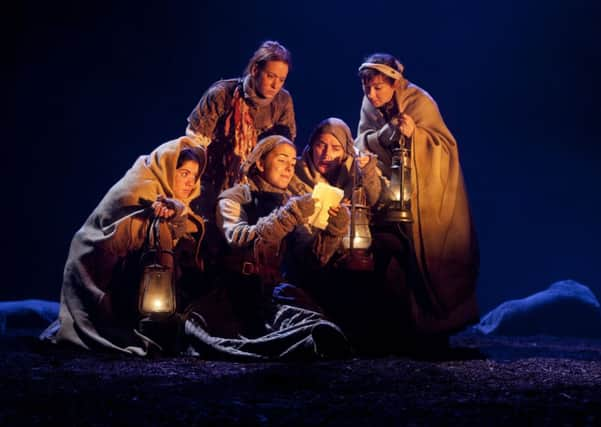Review: Bondagers


* * *
Royal Lyceum
Under the bondage system a married farm hand – known as a hind – was obligated to provide an additional woman to work in the fields with him, the presumption being that his wife would be too busy keeping his house and raising his children. A bondager was paid a low daily wage and fed and housed by the hind.
Though hinds and bondagers tended to stick to one region, theirs was an unstable life. They shifted between farms and lodgings year on year, finding work via annual hiring fairs that sound similar to slave auctions. Workers’ dwellings were cramped and food a precious resource. Economic and sexual tensions were inevitable.
Advertisement
Hide AdThis is material as rich as the arable soil, and Glover’s play unfolds like a dream, much enhanced by the splendid set by Jamie Vartan, who filled the theatre with dirt that clung to our nostrils, making it impossible to forget that the land – and our relationship to it over the millennia – is the beating heart and soul of this piece. Unfortunately the play drags, especially during the first half, when so much time is taken up depicting this foreign way of life that little happens as a result. It sometimes felt more like a fascinating educational show for schools than a drama for adults. And the political agenda lacked subtlety: you could practically see snippets of dialogue inscribed on placards at a protest march.
That said, this is an enjoyable show performed by an ensemble cast of women who are talented, sure-footed and generous with one another. They move like a dance troupe across the “fields” and through their homes, and at times this is hypnotic. It is never less than intriguing peering at this lost way of life – from the costumes to the chores – but I could have wished it a little shorter, and the characters a bit more engaging and distinctive.
Royal Lyceum Theatre, through 15 November